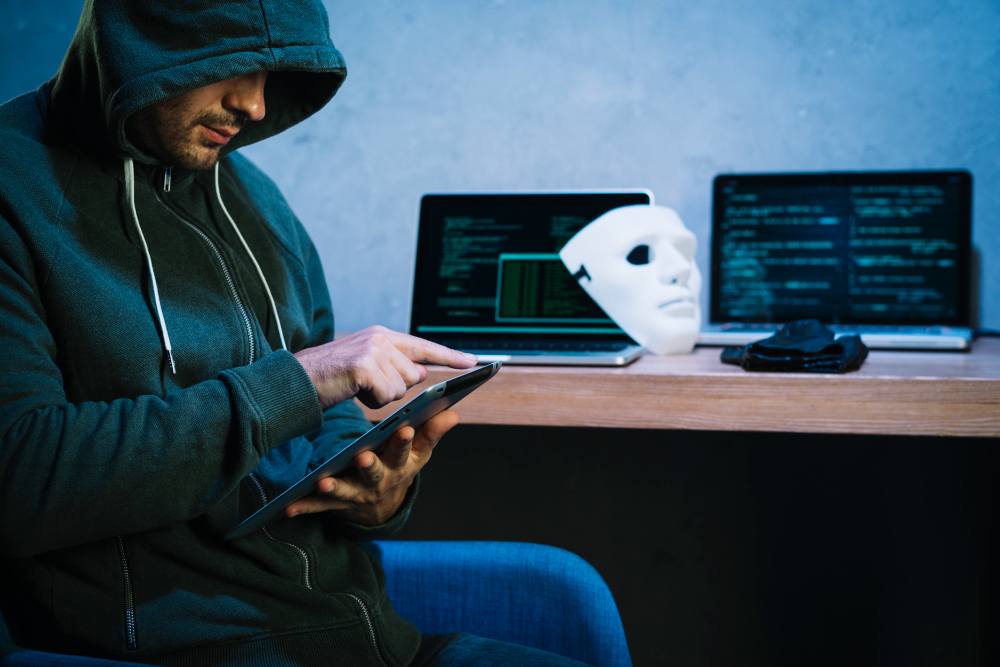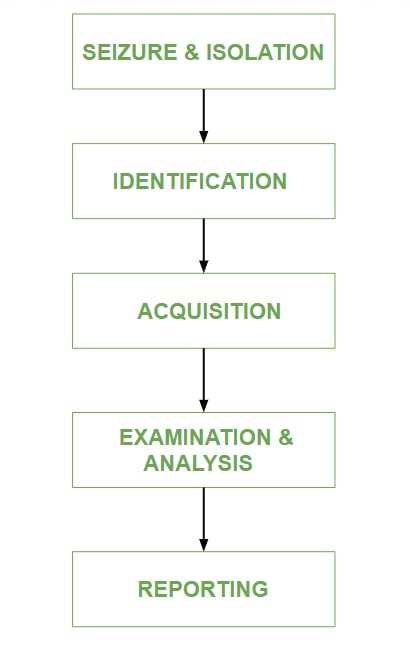
Let's Keep in touch!
Join our newsletter to get more content like this via email!
Subscribe my Newsletter for new blog posts, tips & new photos. Let's stay updated!

Cell phones are among the most common and important electronics in a world where digital devices are becoming an integral part of our everyday lives. The original functions of these portable devices—making calls and sending texts—have long since been superseded. These days, they act as personal assistants, entertainment hubs, and safes for private data. Our cell phones store a plethora of information about our lives, behavior, and activities, ranging from private talks to financial transactions.
However, there is a chance for abuse, misuse, and illegal activities as digital data proliferates. Whether it’s traditional crimes like theft and fraud or cyber crimes like hacking and phishing, cell phones can still be used in illegal activities. Cell phone forensics is a vital subject that helps recover, analyse, and present digital evidence from mobile devices in these kinds of situations.
The field of mobile phone forensics has developed quickly in tandem with technological breakthroughs and the growing complexity of mobile devices. Call log and text message extraction started off as a fairly simple operation, but it has developed into a complicated field that uses a variety of forensic tools and techniques.
The process of removing data from mobile devices was laborious and time-consuming in the early days of cell phone forensics. In order to access and retrieve data, forensic experts frequently had to rely on manual techniques, which constrained the breadth and effectiveness of their investigations. But mobile technology also led to advancements in the field of cell phone forensics.
A wide range of specialized tools and software are now available to forensic specialists with the express purpose of extracting and analysing data from mobile devices. These programs have the ability to go over security protocols, retrieve erased data, and offer in-depth analyses of a device’s usage patterns. More advanced methods for safeguarding and preserving digital evidence have also been developed as a result of developments in data encryption and Cybersecurity.

The process of cell phone forensics typically involves several key steps, each of which plays a critical role in uncovering and analysing digital evidence:
Getting the device itself is the first step in cell phone forensics. In order to produce a forensic image of the device’s storage while preserving the integrity of the original data, forensic experts employ specific instruments and methods. Getting a complete and correct copy of the device’s data is always the aim of this operation, however it may differ based on the kind of device and its operating system.
Data analysis can start as soon as the forensic image is generated by experts in the field. In order to do this, you must search through the device’s storage for any evidence that might be pertinent to the investigation. Text messages, call records, emails, pictures, videos, internet browser history, GPS data, and much more might be included in this. Sophisticated methods can also be employed to retrieve concealed or erased information, offering significant perspectives on previous actions.
Forensic experts must evaluate their results and make judgments based on the evidence after analysing the data. This could entail reassembling timelines of events, finding patterns or trends in the data, and linking various pieces of information. The intention is to present an accurate and thorough image of the actions that occurred on the device, which can subsequently be utilized to confirm or deny claims made during legal processes or investigations.
Lastly, in order to present their results in court or other legal actions, forensic professionals must record their findings in a comprehensive report. Typically, this report consists of an analysis of the evidence gathered, a description of the procedures used, and an overview of the investigation. Visual aids like timelines, graphs, and charts may also be included to help highlight important discoveries. For the report to be credible and admissible in court, it must meet stringent requirements for objectivity, impartiality, and accuracy.
The applications of cell phone forensics are diverse and far-reaching, encompassing a wide range of scenarios and industries. Some of the most common applications include:
Data recovery is one of the main applications of mobile phone forensics. Whether it’s unintentionally erased images, misplaced contacts, or damaged files, forensic experts can frequently recover important data that would have been lost otherwise. This is especially crucial in situations where the data is crucial, like in court cases or investigations.
Criminal activity involving cell phones is common; these crimes can be classified as typical theft and violence or as cybercrimes including identity theft and hacking. Cell phone forensics can offer vital evidence that connects suspects to crimes, creates chronologies of occurrences, and reveals motives in criminal investigations. Mobile device evidence includes text messages, call records, GPS information, and internet browser history, to name a few things that forensic experts can retrieve.
Cell phone forensics can assist firms in locating evidence of wrongdoing in cases of corporate espionage, data theft, or employee misbehaviour. This could contain proof of theft of intellectual property, unsanctioned communications, or policy violations at the workplace. Using digital footprint analysis on company-issued devices, forensic specialists can spot suspicious activity and take the necessary precautions to reduce hazards.
In family law matters, such as divorce processes or child custody disputes, cell phone forensics is also relevant. Court rulings may be influenced by the information revealed in text messages, emails, and other digital communications about an individual’s behaviour or intentions. Comparably, in civil cases, allegations pertaining to contracts, accidents, or other legal issues may be supported or refuted by digital evidence derived from cell phones.
While cell phone forensics can be a powerful tool for uncovering evidence, it also presents several challenges and ethical considerations. These include:
There are serious privacy concerns due to the large amount of personal data that is stored on cell phones. Strict procedures and legal requirements must be followed by forensic specialists to make sure they don’t cross lines or infringe on people’s right to privacy. This could entail getting the necessary approval before using the gadget or getting a court-issued warrant.
The adoption of encryption technology has increased, making it harder to access and decrypt data from mobile devices. Because of this, forensic experts need to stay up to date on the newest encryption techniques and create creative ways to get past or around encryption protections. But they have to make sure they don’t break any laws or jeopardize the accuracy of the data.
The admissibility of digital evidence in court requires the maintenance of a clear chain of custody. To prove that the evidence hasn’t been tampered with or compromised, forensic experts need to record each and every step of the evidence collection, processing, and storage procedure. This protects against objections to the evidence’s admission and aids in establishing its credibility and authenticity.
Legal and jurisdictional complications may impede the forensic procedure in cases spanning national or international borders. To gather and legally examine digital evidence, forensic specialists may have to navigate intricate legal frameworks and collaborate with authorities in several jurisdictions. This necessitates a deep comprehension of the pertinent laws, rules, and practices in each of the relevant jurisdictions.
From aiding in criminal investigations to assisting individuals in recovering lost data, cell phone forensics plays a vital role in our digital world. As our reliance on mobile devices continues to grow, so too will the importance of forensic specialists who can unlock the secrets hidden within these ubiquitous gadgets. However, with great power comes great responsibility, and it is crucial that cell phone forensics is conducted ethically, transparently, and in accordance with the law to uphold the principles of justice and privacy in our society.
 Technology
Technology
 Technology
Technology
 Technology
Technology
 Technology
Technology
Write a Reply or Comment